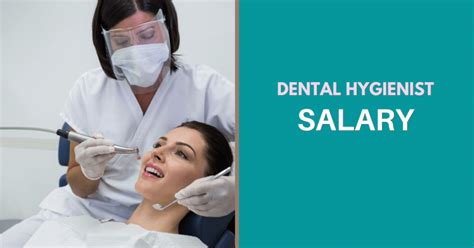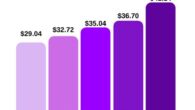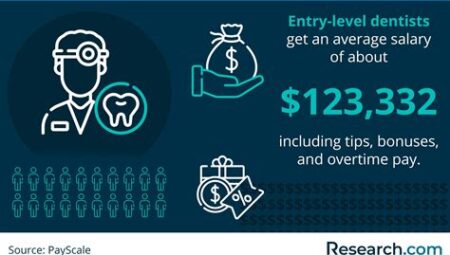Are you considering a career as a dental hygienist? Not only is it a rewarding profession that plays a crucial role in maintaining oral health, but it also offers a generous income. In this blog post, we will explore the various factors that influence dental hygienist salaries, including regional differences, experience, additional certifications, and career progression. We will also discuss how working in private practice versus the public sector can impact earnings, as well as specialization options and the potential for salary growth. Whether you’re a seasoned dental hygienist looking to negotiate a higher salary or someone considering this career path, understanding the average income and future outlook for dental hygienists is essential. Let’s dive into the world of dental hygienist salaries and discover the potential for both cleaning teeth and earning a lucrative income.
Table of Contents
Average dental hygienist salary: how much do they earn?
Dental hygienists play a vital role in the healthcare industry, providing essential preventive dental care to patients. But many people wonder how much dental hygienists actually earn. The average dental hygienist salary can vary depending on several factors, including location, experience, and additional certifications.
According to the Bureau of Labor Statistics, the median annual wage for dental hygienists was $77,090 in May 2020. This means that half of all dental hygienists earned more than this amount, while the other half earned less. However, it’s important to note that this figure can fluctuate based on a variety of influences.
One of the primary factors influencing dental hygienist salaries is geographical location. Dental hygienists working in metropolitan areas or regions with high demand for dental services may command higher salaries than those in rural or less populous areas. For example, a dental hygienist working in California may earn significantly more than one working in a smaller, less populated state.
In addition to location, a dental hygienist’s level of experience can also impact their salary. Dental hygienists with several years of experience may be able to negotiate higher wages, especially if they have demonstrated a strong track record of providing quality care and building a loyal patient base.
Factors influencing dental hygienist salaries
When it comes to the dental hygienist salaries, there are several key factors that can influence how much an individual earns in this profession. One of the most significant factors is the level of education and experience that a dental hygienist possesses. Those with higher degrees and more years of experience typically command higher salaries.
Another important factor is the location in which the dental hygienist practices. Regional differences can have a significant impact on salary, with some areas offering higher wages due to demand, cost of living, and other economic factors.
Additionally, the type of practice in which a dental hygienist works can also influence their earnings. Those working in private practice settings may have the potential to earn more than those in the public sector, but this can vary depending on the specific circumstances of each practice.
Finally, the pursuit of additional certifications and specializations can also play a role in determining a dental hygienist’s salary. Those with specialized training or certifications in areas such as periodontics or pediatric dentistry may be able to command higher wages due to their specialized skills and expertise.
The correlation between experience and dental hygienist earnings
As dental hygienists gain more experience in the field, their earnings tend to increase significantly. This trend is often attributed to the valuable skills and knowledge that hygienists acquire over time, as well as their ability to build a strong patient base.
Experience plays a crucial role in determining the salary of a dental hygienist. Entry-level hygienists may earn a lower salary compared to those with several years of experience under their belt. This is due to the fact that experienced dental hygienists are typically more efficient in performing their duties, allowing them to see more patients and provide a higher level of care.
Furthermore, experienced dental hygienists often have a more comprehensive understanding of dental procedures, allowing them to take on additional responsibilities within the dental practice. As a result, they may be eligible for higher pay or bonuses for their expertise and contributions to the team.
In addition, experienced dental hygienists are often able to command a higher salary because of their established reputation and relationships with patients. Patients tend to value the continuity and trust that comes with seeing the same hygienist for their dental cleanings and treatments, leading to increased demand and potential for higher earnings.
Regional differences in dental hygienist salaries
When it comes to the salaries of dental hygienists, there are several factors that can influence how much they earn, and one of the most significant factors is their geographical location. Regional differences play a major role in determining the wages of dental hygienists, and this can be attributed to a variety of reasons.
For example, in urban areas where the cost of living is higher, dental hygienists may command higher salaries to compensate for the increased expenses. On the other hand, in rural areas where there may be a lower demand for dental hygienists, the salaries may be lower due to the decreased competition.
Additionally, state-level regulations and licensing requirements can also affect the salary levels. Some states may require more rigorous licensing exams or continuing education, which could lead to higher salaries for dental hygienists in those areas.
Furthermore, regional differences can also be influenced by local economic conditions and the availability of dental practices. For instance, areas with a higher concentration of dental facilities may offer more job opportunities, leading to increased competition among employers and potentially higher salaries for dental hygienists.
Private practice vs. public sector: impact on earnings
When considering a career as a dental hygienist, one of the major decisions to be made is whether to work in a private practice or in the public sector. This decision can have a significant impact on the earning potential of a dental hygienist. In a private practice, dental hygienists may have the opportunity to earn higher salaries due to the nature of the business and the potential for higher patient volumes. Practices may also offer bonus structures and other incentives to attract and retain top talent.
On the other hand, working in the public sector, such as in community health centers or government clinics, may offer a more stable salary with benefits such as retirement plans and health insurance. However, the earning potential may be lower compared to the private sector, and there may be fewer opportunities for bonuses or performance-based incentives.
It’s important for dental hygienists to carefully consider their career goals and personal preferences when deciding between private practice and the public sector. Factors such as work-life balance, job stability, and the potential for career advancement should all be taken into account when weighing the impact on earnings.
Ultimately, the decision of whether to work in a private practice or in the public sector will depend on the individual and what they value most in their career. Both paths can offer rewarding opportunities, and the impact on earnings is just one of many factors to consider when making this important decision.
The role of additional certifications in boosting dental hygienist incomes
Obtaining additional certifications can have a significant impact on the earnings of dental hygienists. By investing in further education and specialized training, dental hygienists can expand their skill set and knowledge base, making them more valuable to employers and patients alike. Employers are often willing to pay higher salaries to dental hygienists who have completed additional certifications, as they bring a higher level of expertise to the table.
Specialized certifications, such as in pediatric dentistry or periodontics, can open up new career opportunities and increase the earning potential of dental hygienists. These certifications demonstrate a dedication to continuous learning and professional development, which can set individuals apart in a competitive job market.
Furthermore, additional certifications can lead to increased job satisfaction and fulfillment, as dental hygienists are able to take on new challenges and tackle complex cases with confidence. This can result in enhanced job performance, recognition, and ultimately, higher salaries.
In conclusion, investing in additional certifications can be a smart strategy for dental hygienists looking to boost their incomes and advance their careers. By staying current with the latest developments in the field and acquiring specialized expertise, dental hygienists can position themselves for success and demand higher compensation for their valuable skills.
Career progression and salary growth for dental hygienists
As a dental hygienist, the potential for career progression and salary growth is an important factor to consider when entering the field. With the demand for dental services on the rise, opportunities for career advancement have also been increasing in recent years. Many dental hygienists start their careers in entry-level positions at dental offices, but with dedication and further education, they can progress to more specialized roles within the field.
Obtaining a bachelor’s or master’s degree in dental hygiene can lead to higher-paying positions, such as teaching or research roles in educational institutions or private companies. Additionally, gaining experience and additional certifications in specialized areas, such as periodontics or pediatric dentistry, can also lead to salary growth and career advancement opportunities.
Another aspect of career progression for dental hygienists is the potential for managerial or administrative roles within dental practices or public health organizations. As seniority and experience increase, dental hygienists may take on supervisory or leadership positions, leading to higher salaries and increased job satisfaction.
It’s important for dental hygienists to stay informed about industry trends and advancements, as well as networking within professional organizations and attending continuing education courses to stay competitive in the job market. By staying proactive in their career development, dental hygienists can pursue opportunities for salary growth and career advancement within the field.
Specialization options and their effect on dental hygienist incomes
When it comes to the field of dental hygiene, there are several specialization options that can have a significant impact on incomes. Specializations such as pediatric dentistry, orthodontics, or periodontics can lead to higher earning potential due to the specialized skills and knowledge required. Hygienists with these specializations are often in high demand and can command higher salaries as a result.
Additionally, obtaining certifications in areas such as anesthesia administration or restorative functions can also lead to increased earning potential for dental hygienists. These specializations and certifications demonstrate a commitment to ongoing professional development and can make hygienists more valuable to employers.
Furthermore, geographic location can play a role in the effect of specialization options on dental hygienist incomes. In areas with a high demand for specialized dental services, hygienists with relevant specializations may be able to negotiate higher salaries or have access to more job opportunities.
Overall, the effect of specialization options on dental hygienist incomes is significant. By pursuing specialized training and certifications, hygienists can increase their earning potential and advance their careers in the field of dental hygiene.
Negotiating strategies for higher dental hygienist salaries
One of the most effective negotiating strategies for higher dental hygienist salaries is to highlight your unique skills and qualifications. By emphasizing the value you bring to the practice, you can make a strong case for a higher compensation package. This could include showcasing your experience with advanced techniques, specialized certifications, or additional training that sets you apart from other candidates.
Another important negotiating strategy is to do thorough research on industry standards and regional trends. By understanding the average dental hygienist salary in your area, as well as the demand for hygienists with your skill set, you can leverage this information during salary discussions. Highlighting the competitive landscape and demonstrating how your skills align with market demand can strengthen your position during negotiations.
Networking can also be a valuable tool for negotiating higher salaries. By connecting with other dental hygienists, industry professionals, and mentors, you can gain valuable insights and advice on best practices for salary negotiations. Building a strong professional network can also lead to potential job opportunities where you can apply your negotiating strategies to secure a higher salary.
Lastly, it is important to approach salary negotiations with confidence and professionalism. Clearly articulating your value, presenting your research, and showcasing your professional network can position you as a strong and deserving candidate for a higher dental hygienist salary. By leveraging these negotiating strategies, dental hygienists can work towards earning the compensation they deserve for their important role in the healthcare industry.
The future outlook for dental hygienist salaries
As the demand for dental services continues to increase, so does the need for dental hygienists. With an aging population and a greater awareness of the importance of oral health, the future outlook for dental hygienist salaries is promising.
Advancements in technology and preventive dental care are also expected to drive the demand for dental hygienists. This will create more job opportunities and potentially lead to higher salaries for those in the profession.
Furthermore, the focus on preventive care and overall health wellness is likely to increase the role of dental hygienists in primary care settings, which could also contribute to greater earning potential in the future.
Overall, the future looks bright for dental hygienist salaries, as the demand for their services is expected to continue to grow, leading to more job opportunities and potentially higher earning potential.






